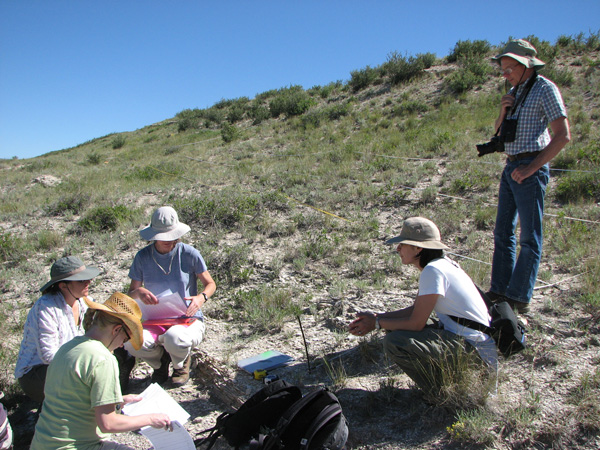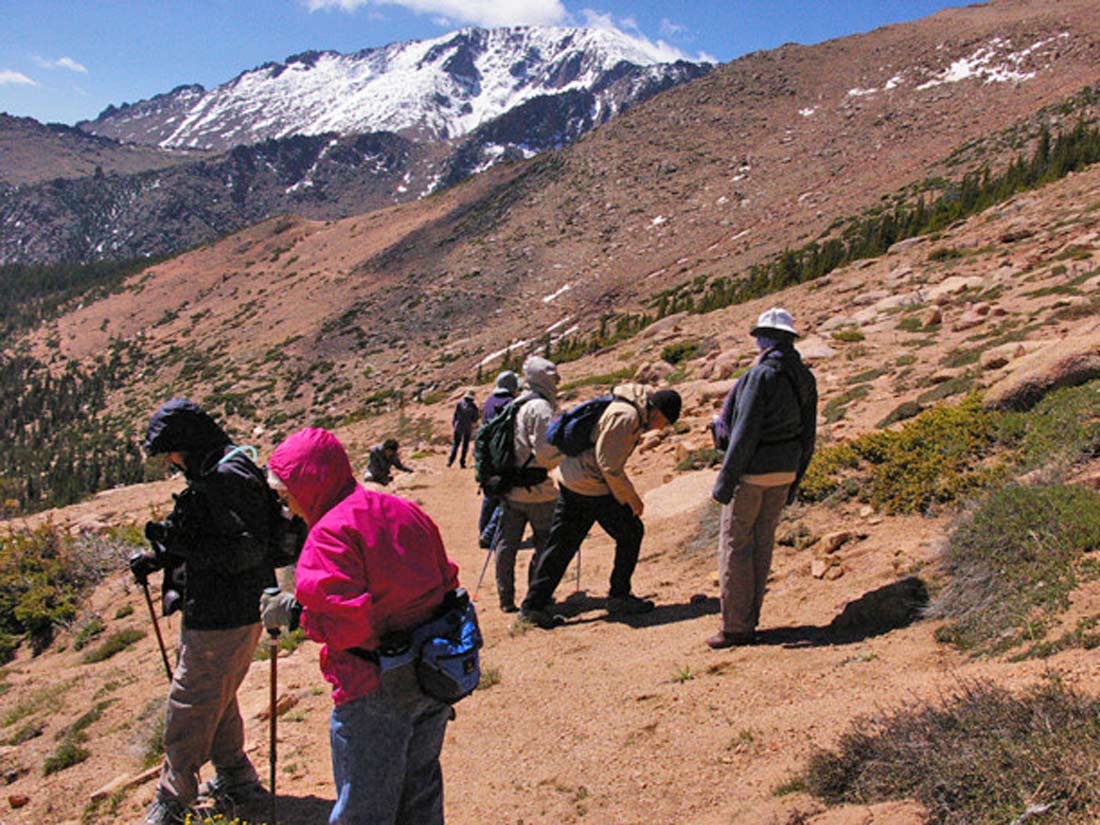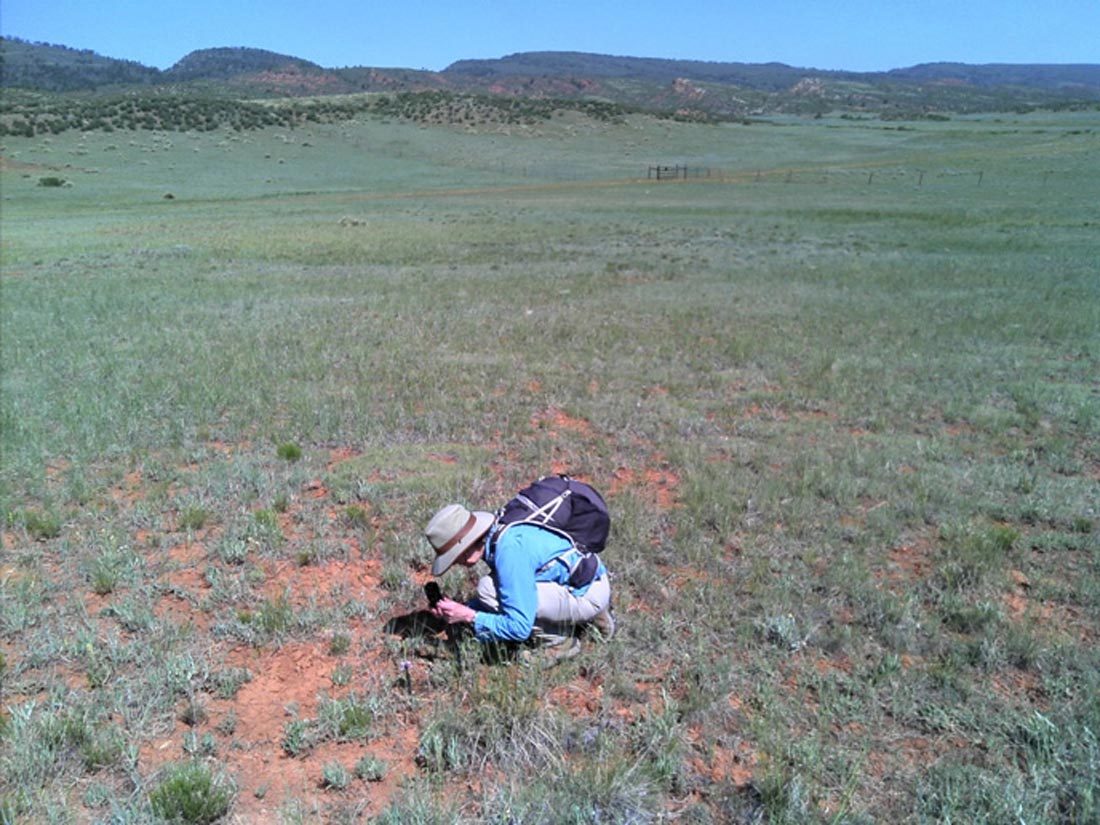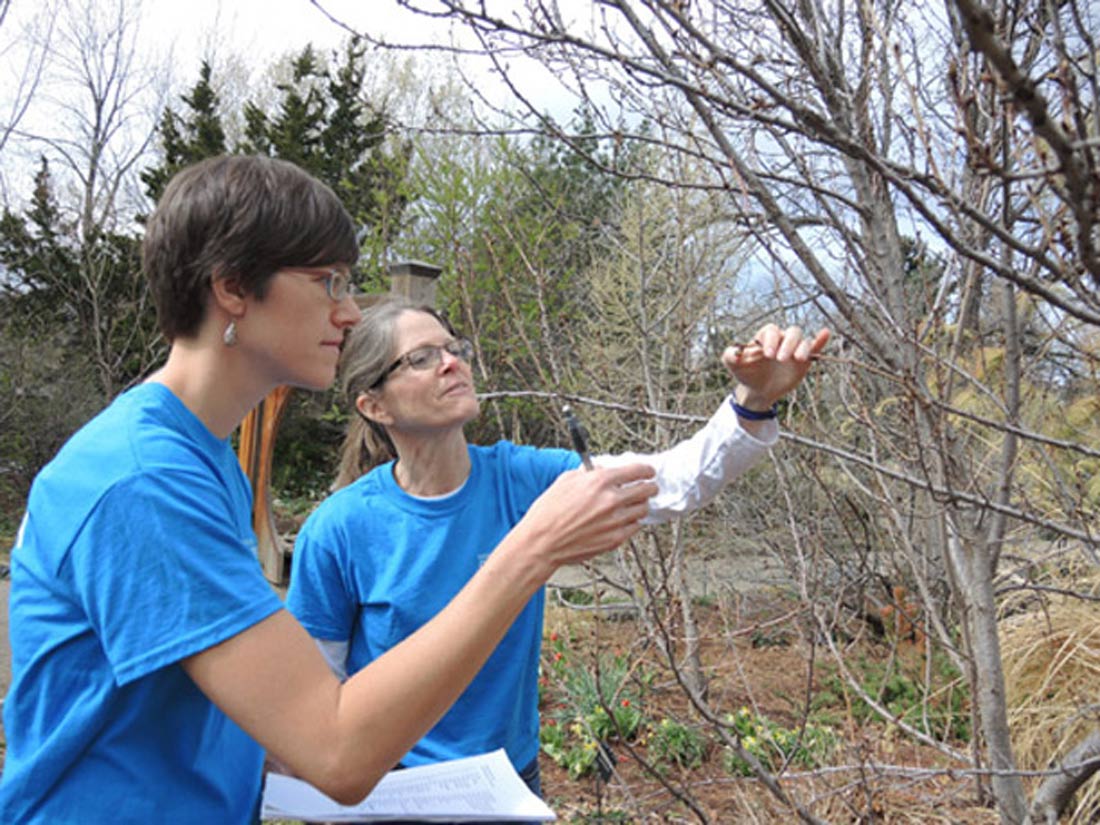Citizen Science Projects

iNaturalist
iNaturalist is a free online platform that combines social networking with citizen science for biodiversity exploration.
- Social Network for Nature Enthusiasts: It connects people who are passionate about nature, including naturalists, citizen scientists, and biologists. You can share observations, collaborate on projects, and learn from each other
- Species Identification Tool: iNaturalist has an automated identification tool that can suggest potential species based on your uploaded photos. The community can also help you confirm identifications or narrow down possibilities
- Open Data: The observations collected on iNaturalist are openly available to everyone, which benefits scientific research, conservation efforts, and public education.
Focus on Learning: The platform provides resources and tools to help people learn more about the natural world around them.

CoNPS Field Research and Bioblitzes
For many years CoNPS has run a series of research studies of ecologically important areas. Over the past few years these studies have taken the form of BioBlitzes. Wikipedia defines BioBlitz as: “an intense period of biological surveying in an attempt to record all the living species within a designated area. Groups of scientists, naturalists and volunteers conduct an intensive field study over a continuous time period.” Being the hearty souls Colorado volunteers are, our BioBlitzes generally run two days with camping in the middle. This program attracts interesting scientists from many disciplines, and for us some wonderful botanists. But this program isn’t just for the heavy-duty botanists. It is a wonderful opportunity for amateur botanists to pair up with experienced botanists and learn a great deal about our native plants. In this role, they can record species, help collect and press specimens and photograph plants to record plants both collected and not collected.
This program is run by Field Studies Committee.

Budburst Phenology Project
Phenology is the science of investigating how climate and other environmental factors influence plant growth. We are interested in when flowers first bloom in spring, when seeds ripen in summer and when leaves turn color in fall. Data on Colorado natives make important contributions to our scientific understanding of how plants are responding to environmental stresses. There just aren’t enough scientists to make the observations that are needed. That is where YOU, the Citizen Scientist, comes in. Ordinary citizens, including children and teenagers, can collect data which is accurate and reliable, once they learn what to look for. It’s a great excuse to spend more time outside, and a great activity for families.
CoNPS is partnering with Budburst, a national citizen science project which tracks environmental changes across the country using data on plants. Volunteers simply make regular observations on stages of plant growth from their own gardens, in natural areas, open spaces or on trails and enter the data on the website or on a phone app. Photos can be added along with observations. For plants you are not sure of, suggestions pop up for you to confirm ID’s.
For information on how to join this effort, contact:
budburstcolorado@gmail.com.
Undecided? Watch videos on phenology recorded by CoNPS members Paul Alaback and Maggie Gaddis on youtube: Citizen Science and Phenology Webinar.

Denver Eco-flora Project
The Denver EcoFlora Project is a citizen science program run by the Denver Botanic Gardens in conjunction with the New York Botanical Garden and the Institute of Museum and Library Services. The program is designed to engage citizens in the Denver and Boulder areas to participate in collecting information about plants and fungi in their own communities.
The program started in 2020 and has the following two main goals:
Meaningfully engage citizens in observing, protecting and preserving the metro area’s native plant species.
Assemble novel observations and data on the metro area’s flora to better inform policy decisions concerning land management and conservation strategies.
Anyone may join the program. All you need is access to an Smartphone and take a few minutes to learn the iNaturalist application which you download to your phone. Then start taking photos of the plants, fungi, animals and insects that you see. iNaturalist suggest what species it might be and then the photo is sent on to be verified by experts.
